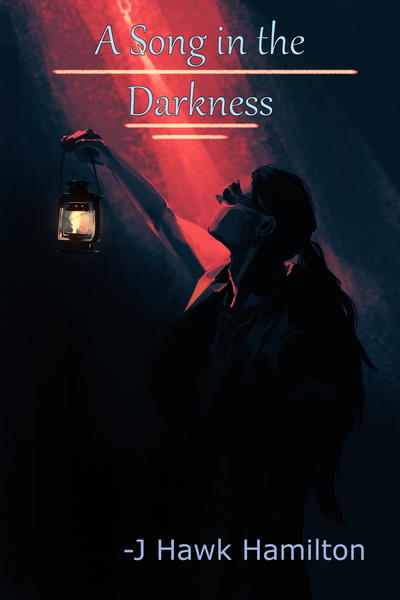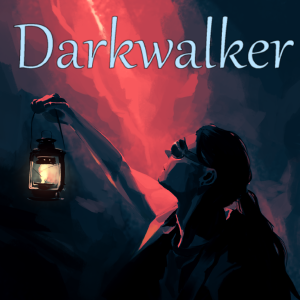Outside, I find my scooter exactly where I left it. Unsurprising. I place the package quickly into the compartment beneath the seat and then begin my journey to visit Grandy. He lives in a communal home on the west side of the sub-city, about 15 minutes travel.
I know that the video broadcast has since concluded, and expect to find light congestion from pedestrians in the travelways. Again, I am unsurprised. The major corridors host a small number of dwellers walking on each side, leaving a throughway for scooters clear in the center. I am careful as I motor; usually the travelways are nearly empty as I journey to and from work. There is simply not enough space to have travelways entirely dedicated to scooters. And walking is most assuredly the dominant method of travel.
With caution adding to travel time, I arrive at the home in 20 minutes. Many people are visiting their elders today, to bring sweets and share their holiday. Family is one of the most important values among the citizens here. But not all are able to house their elders, especially those needing extra considerations. Those like Grandy.
I park my scooter in a designated area to the left of the entrance and retrieve the package of sweets. The lighting here is bright, banishing shadows beneath the beams of ultraviolet radiance. It is a poor replacement for sunlight, but with the darkening of the natural sky, there are no other options for survival than to try and find artificial replacements for those natural resources that were lost. Brittle bones were a distinct problem early on due to Vitamin D deficiencies in the populace, though the prolific use of individual UV treatments and widespread replacement of daytime lighting with appropriate bulbs has brought that into better control.
I follow another family into the home. There are five of them; the parents are speaking of visiting an auntie, with the father carrying a small plant as a gift, while the mother carefully ensures her cake is not bumped by the energetic children as they vie for her attention. Two young boys each chase the other, both holding a small sack of sweets, while a small girl grips a crayon drawing to her chest. I do not envy that auntie the chaos she is about to receive.
They turn right as the entry hall branches, much to my own relief. Grandy’s room is the furthest room down the left hallway. I pass by open doorways, hearing the visitations of the families filtering out from the rooms. The cheerfulness of the adults is feigned; even now, four generations removed from the incident, they still hold to their fear. I can hear it in the pointed way they avoid discussing the reason today is a holiday. Those like the children of the previous family are few, with their genuine enthusiasm. It is likely it will be trained out of them by the time they are grown and replaced with the caution and fear handed down to them by previous generations.
The noise decreases as I walk down the hall, leaving the visitations behind. I know that I will be Grandy’s only visitor today. We have no other living family.
I rap gently on the lintel of Grandy’s door, next to the nameplate which reads “Lorezant”, pausing before I cross the threshold out of courtesy. His reply is faint. But I expect this. His hoarse whisper bids me enter and I slip inside his room.
This facility has electric lighting, and Grandy clicks it off as I enter. He is lying in his bed with the head elevated so he may view the display hung on the opposite wall. It is playing a repeat of the video shown in all the squares this morning, as it will for the rest of the day on every channel. Some families enjoy this, allowing it to be the backdrop to their festivities. But Grandy has no other choice: this home is provided by the government for elder care, and they mandate that the displays replay the video over and over, nonstop. He has muted the sound, about the only control he has of the playback today, though the dialogue is still offered in closed captions across the bottom.
“Hello, grandsire.”
I walk to the far side of his bed, drawing one of a pair of chairs tucked beneath a small sitting table over to his bedside so I may be near to him.
“Tarriq. I am glad for your visit.”
His voice is a rasping whisper on the best of days, and today seems to not be one of those. I hear an echo of a cough in his voice. His olive skin appears faded, with eyes and cheeks a bit sunken. Age has not been kind to Grandy. The once dark hair of his youth has been replaced with silvered strands and creases line his weathered face.
But even beyond that, his body has not endured well. His parents were children when the destruction of the surface occurred, and Grandy was one of the first to venture upward to discover the true scope of the devastation as a young adult. Radiation was a constant threat, as the early environmental hazard gear was less than ideal. Additionally, an accident some years ago left him exposed to the toxic soup which replaced breathable atmosphere aboveground, scarring his lungs and trachea. Now, any exertion leaves him gasping, unable to transfer enough air to his bloodstream. Tubing supplies him additional oxygen upon every breath and a mask hangs ready upon a nearby canister should that still be insufficient.
My eyes fall to his bedside table as I seat myself. I see the nurses have left a framed greeting upon his bedside table, wishing him happiness upon this Survivors’ Day. Disgusted, I snatch it up and prepare to launch it at the display in a fit of pique. But Grandy places a hand upon my knee and I pause to reconsider. My gaze falls upon him as he gently shakes his head. Deflated, I simply deposit it into the wastebasket instead.
“What is in your hand?” he rasps.
It startles me that he noticed, and that I had forgotten the package. “Sweets from Meshani, Grandy.” I offer him the package and he accepts it, his hands steady despite the ravages of time.
Grandy carefully peels back the edge where Meshani melted the wax to seal it shut. “I hope these are more of the jasmine candies,” he comments hoarsely, drawing out a small lump of crystallized sugar. He pops the candy into his mouth and sets the package aside on his bedside table, a fitting replacement for the offensive printout. I watch him savor it for a long moment, joy lighting his face at the flavor. It softens my own expression to see him.
“Are they treating you well?” I ask at length.
He chuckles dryly. “As well as they treated me last week. And the week before. And the week before that.” It is a joke between us; I ask him the same question every week when I visit, and he offers the same reply.
But this time, he sobers quickly. “You look tired. How is work?” I draw in a deep breath, gathering my thoughts, and it seems he senses what I am about to say. “Let me shut the door, so we can talk about it.”
Grandy takes up the remote by his right hand and toggles the door shut. The electric motor whirs faintly as it slides out of the wall and seals with a hiss of pressure. It is as good as hanging up a “Do Not Disturb” sign today. He then toggles on the single red light mounted in the ceiling above.
I reach up and remove my goggles, placing them on the bedside table near to hand for both of us. The red hue and dim glow of the light does not offend my vision, and it allows both of us to see comfortably. The display adds its own muted illumination, but there is no help for that.
I know he can see me when my shoulders slump. “The machinery is failing, Grandy.”
He seems unsurprised. “It was only a matter of time. How soon?”
“The water pumps are already struggling, and filtration is not far behind. I had to rebuild the main freshwater intake mechanism at Station Seven last night. Air filtration and recycling are degrading slowly. Waste treatment was upgraded in Station Four last week, but I have to go replace a faulty valve tonight because the part was manufactured to old specs. The metal is corroding faster than we can manufacture replacement parts. At this rate? Everything will begin to shut down in five years and the systems will be offline within ten.”
Grandy sighs. I have the sudden insight that he expected this answer even before now. “We knew we could not hold out forever.”
“The demand upon the systems is just too great. Too many people are trying to rebuild the population numbers too quickly.” I hear the cynicism in my voice, but plunge forward. “And despite the calls for surface dome development, we will not have that ready in time. New Cairo tried. Their support beams fractured under stress testing. Death toll stands at 127 and growing as more succumb to atmosphere toxicity. The administration is suppressing the outcome to prevent public panic; one of the technicians on duty yesterday has a parent that works for the council and is privy to details.” It seems likely she was not supposed to speak of it, as I came upon the hushed conversation by accident.
“So what is the answer, Tarriq?”
I shake my head at the challenge Grandy tries to insert into his voice. Sometimes, I wonder if he is incapable of despair. “That is entirely the wrong question, Grandy, and we both know it.”
He smiles there in the muted light. “Good. So what is the question?”
“How do we get the establishment to recognize the answers?”
“Yes.” There is satisfaction in his whispered assertion.
I sigh. “There are no easy answers to this question. Especially with the steady diet of propaganda and fear mongering fed to the general populace. I report my findings at every turn. Every time I file paperwork regarding the systems maintenance, I include documentation of what is causing the breakdowns. The problem is that at the most fundamental level, no one else can rebuild and maintain the machinery. It is, quite literally, a foreign concept to them. Even those I try to train cannot grasp the intricacies of the machinery. The technicians are competent for basic maintenance and minor part replacement. But they just are…” I spread my hands wide as I trail off, searching for the right words. “Ill equipped for rebuilding the major components. They cannot see it as I do.”
Grandy understands my choice of phrasing. He nods, accepting.
It is at this moment that we are interrupted.













Comments (10)
See all